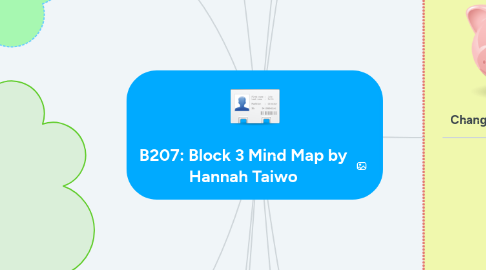
1. Success
1.1. Medium term
1.2. Long term
1.3. Short term
2. Ideas in time Ideas In Time
2.1. Innovation cycles
2.1.1. Business
2.1.2. Product life cycle
2.1.3. Environmental
2.1.3.1. Transformation
2.1.3.1.1. Technology
3. Employment relations
3.1. Economic analysis
3.1.1. Human Resource Management (HRM)
3.1.1.1. Employee 'voice'
3.1.2. Macro
3.1.2.1. Legal perspective
3.1.2.1.1. Regulatory
3.1.2.2. Market effects
3.1.3. Micro
3.1.3.1. Negotiations
3.1.3.1.1. Transition from Union power
3.1.3.2. Flexible working
3.1.3.2.1. Pros
3.1.3.2.2. Cons
4. Differences
4.1. Stakeholders
4.1.1. External influences
4.1.1.1. Eg. corporate activism
4.2. Between business functions
4.3. Market worth
4.3.1. External cultural context
4.4. Creating Value
4.4.1. Innovation
4.4.1.1. Organisational culture
4.4.1.2. Value players
5. Ideas in context
5.1. Stakeholders
5.1.1. Analysis
5.2. Soft skills
5.2.1. Hartley and Fletcher's astuteness framework
5.2.1.1. Skills
5.2.1.1.1. Personal
5.2.1.1.2. Interpersonal
5.2.1.1.3. Reading people / situations
5.2.1.1.4. Alignment and alliances
5.2.1.1.5. Strategic direction and scanning
5.3. Games
6. Change Management
6.1. Over time
6.1.1. Short term
6.1.2. Long term
6.1.2.1. Transformation
6.2. Need
6.2.1. Innovation
6.2.2. Sustainability
6.3. Theories
6.3.1. Everett Rogers (1962) Diffusion of Innovation
6.3.1.1. innovators
6.3.1.2. early adopters
6.3.1.3. early majority
6.3.1.4. late majority
6.3.1.5. laggards.
6.3.2. Kotter (1996)
6.3.2.1. Eight step 'process'
6.3.2.1.1. establish a sense of urgency
6.3.2.1.2. create the guiding coalition
6.3.2.1.3. develop a vision and strategy
6.3.2.1.4. communicate the change vision
6.3.2.1.5. empower employees for broad-based action
6.3.2.1.6. generate short-term wins
6.3.2.1.7. consolidate gains and produce more change
6.3.2.1.8. anchor new approaches in the culture.
6.4. Resistance
7. Accounting
7.1. Measurement choices
7.1.1. Historical cost accounting (HCA)
7.1.2. Fair vlaue
7.2. Creating Shared Value
8. Quality
8.1. Improvement
8.2. Operational risk
9. Long term marketing
9.1. Crisis management
9.2. Relationship Marketing
9.2.1. External
9.2.2. Internal
